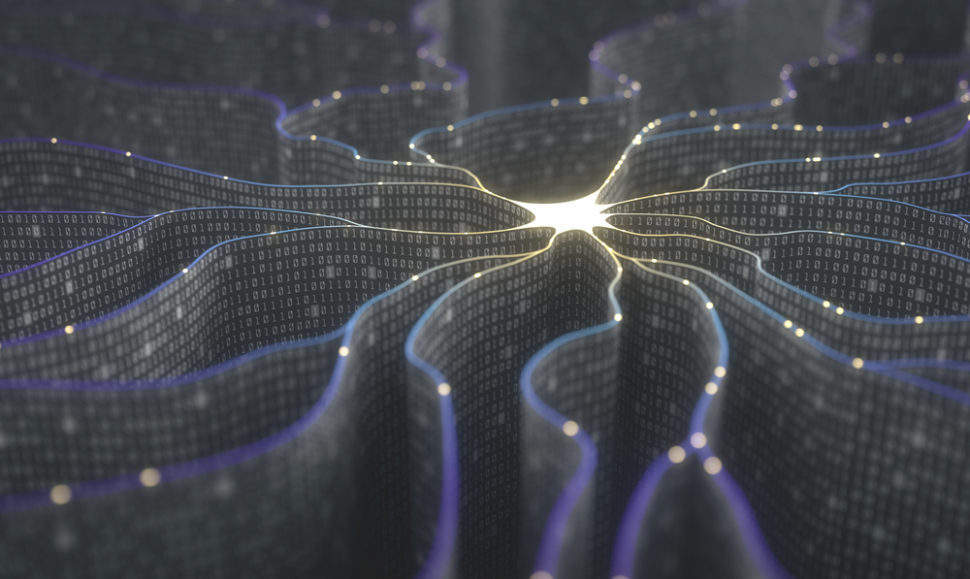The demonstrations of artificial intelligence capabilities are very recent, but the idea of smart machines date back to the dawn of human civilization.
From the automatons of ancient Greece, China, and Egypt, to those of the Renaissance, and humanoid robots, man has always dreamed of creating non-organic intelligence.
Modern AI is more sophisticated both as a concept and a product, and we create it for other reasons than to fulfil a “wish to forge the gods”.
It wasn’t until the 1940s that computers as programmable machines with mathematical reasoning became a reality.
Today, AI can recognize images, identify patterns, make predictions, and show different other skills that were thought to be unique to humans, like driving cars, diagnosing diseases, and forecasting weather.
Machine learning systems are able to learn by themselves, build on acquired experiences, and get more and more efficient over time.
But not all artificial intelligent systems are the same and there’s a lot of uncertainty about a future where humans and super AI would coexist.
In Search of Super AI
“Superintelligence: Paths, Dangers, Strategies” is a 2014 book by Nick Bostrom, a philosopher at Oxford University and founding director of the Future of Humanity Institute.
In this book, Bostrom warns of the risks that super AI entails for humans.
There were two fundamental events throughout the history of Humanity: the agricultural and the industrial revolutions.
When men began to learn how to cultivate the land, they had to settle down and domesticate their environment.
Emerging human societies then saw the development of new phenomena and socio-political concepts, such as the emergence of states and social stratification, and the sense of private property.
Then, the advent of the industrial revolution brought a paradigm shift in our political, social, and economic relationships.
Bostrom compares the fundamental change AI will bring humanity to that of the industrial and agricultural revolutions, but that would be just the start.
Things will become problematic when AI gets to the point of improving itself with full control and with no human supervision at all, something current Machine Learning programs still can’t do.
Bostrom brought up the “Midas Effect” to warn against pursuing a superintelligence dream that may backfire.
As the “Golden Touch” myth goes, King Midas, a rich and greedy king in Ancient Greece, acquired the ability to change all that he touched into gold. But hardly had he started that everything was transformed into gold, including his daughter.
Other AI experts, like Stuart Russell, also cite the Midas myth.
AI Value Alignment
Your average AI programs, no matter how elaborate they are, have no goals of their own and don’t understand any of our values. They simply execute predefined procedures that the programmers have designed according to anticipated use and interaction.
It seems like a matter of time before AI develops a true multi-dimensional, highly autonomous and human-like, then superior, cognitive abilities.
AI is evolving at such a rapid pace that many experts voice their concerns about super artificial intelligence that would transform our world in potentially dangerous ways for humanity.
Stuart Russell, a leading computer scientist and AI researcher, thinks:
“The robot has some objective and pursues it brilliantly to the destruction of mankind. And it’s because it’s the wrong objective. It’s the old King Midas problem. We’ve got to get the right objective,” he explains, “and since we don’t seem to know how to program it, the right answer seems to be that the robot should learn – from interacting with and watching humans – what it is humans care about.”
What would an AI system in a driverless car do in the case of illegal road crossing; hit the jaywalker? Or slam on the brakes and potentially endanger those inside? How would AI solve the “trolly problem”?
Super AI will have to take moral decision and ethical judgments that must be aligned with human values. But if we ourselves lack dead-set values that help us decide on these issues, then how can we align AI actions on our values?



















Comments (0)
Most Recent